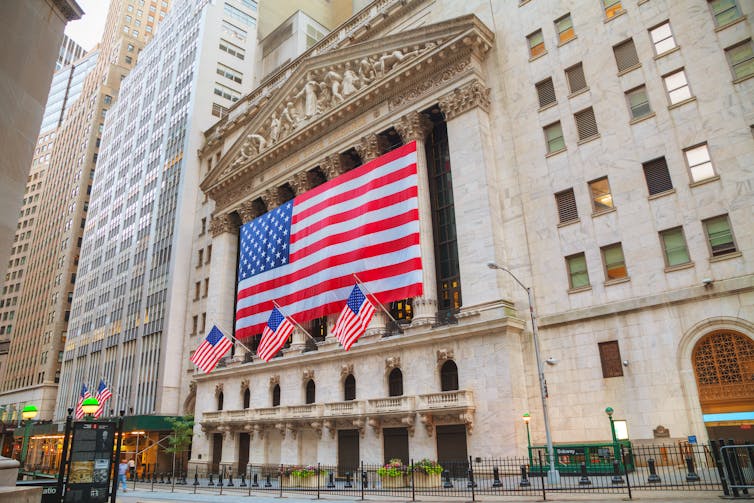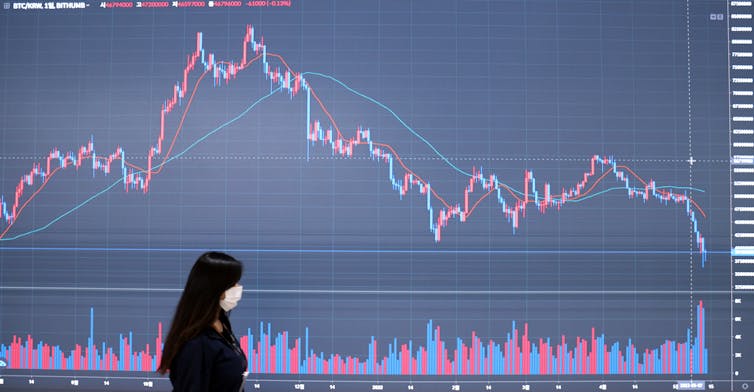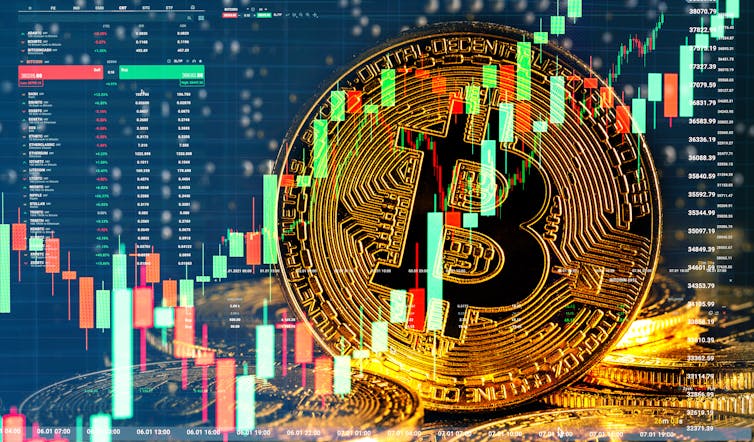The founding father of the sector’s greatest cryptocurrency change, Binance CEO Changpeng Zhao, has referred to as for extra regulatory readability after per week of crypto marketplace chaos and a yr by which traders are estimated to have misplaced US$2 trillion (£1.7 trillion).
“We do want to build up the readability of laws and the sophistication of laws within the crypto house,” Zhao mentioned to a meeting of G20 leaders at a summit in Bali. However it’s not handiest regulators that undergo duty for shielding folks, the business must additionally have a look at new fashions that would lend a hand.
The new cave in of FTX – which has filed for chapter coverage in the United States, however was once valued at US$32 billion previous this yr – has had important repercussions for all of the cryptocurrency business. Even essentially the most established electronic foreign money, Bitcoin, hit a two-year low following the FTX woes.
Cryptocurrencies permit buyers or traders to shop for and promote with out the will for banks and brokerages. Blockchain era allows peer-to-peer cryptocurrency transactions to occur on exchanges akin to FTX and its rival Binance with out those middlemen.
As an alternative, transactions are authenticated via consensus through a bunch of validators, usually referred to as miners. Miners clear up complicated mathematical puzzles to try this, differently referred to as the evidence of labor device utilized by Bitcoin and maximum cryptocurrencies.
However relating to setting up those transactions, Binance and its friends use the similar “restrict order guide” type as any conventional change such the New York Inventory Change. This implies there’s a centralised construction that fits consumers and dealers, with marketplace makers supplying liquidity and charging buyers for transactions.
This sort of construction has exacerbated fresh occasions within the crypto house to a point. FTX’s centralised type allowed it to make loans to troubled crypto corporations previous this yr. It additionally used exchange-issued tokens (FTT) to spherical out its sister corporate’s books. This will increase the chance of publicity to a marketplace cave in.
However an rising type, decentralised exchanges, operates underneath other laws for pricing cryptocurrencies and for governance that would cut back such dangers. They enable traders to shop for and promote tokens at an algorithmically made up our minds worth. This automatic type does no longer depend on skilled marketplace makers, as a substitute particular person traders provide liquidity and acquire a portion of charges from trades.
Contents
A unique crypto change type
Like many decentralised exchanges, Uniswap, which introduced in 2018, has a governance token referred to as UNI that particular customers of the change can use to solid votes in selections about how the change operates. In idea, no centralised entity can manipulate device selections voted via through house owners of those cash.
This is helping the customers of the change to retain regulate over what’s taking place with their finances. Estimates recommend that as much as 49,000 addresses at the Ethereum blockchain grasp UNI tokens and 60% of tokens are held through traders.
Some other factor that plagued FTX in its ultimate days was once that it’s custodial, because of this it had the suitable to droop withdrawals of cryptocurrency through traders. FTX’s resolution to prohibit withdrawals through traders supposed many folks had been refused get right of entry to to cash they used to business at the change.
Decentralised exchanges are non-custodial, so they permit particular person traders complete get right of entry to to their crypto pockets balances and they may be able to withdraw or deposit liquidity or prevent buying and selling at any time without a possibility in their property being frozen through the change.
One problem of decentralised exchanges as opposed to centralised fashions akin to FTX and Binance, on the other hand, is they don’t permit buyers to interchange fiat (conventional currencies issued through governments or international locations) for crypto – they may be able to handiest business other cryptocurrencies at the change. The scale of any business is dependent upon the dimensions of the liquidity pool, so if the latter is just too small, a dealer may well to find it tough to make their desired transaction occur.

picture.ua / Shutterstock
Which form of change is most likely dominate crypto buying and selling at some point is dependent upon a number of components.
As some consumers have withdrawn their crypto deposits from FTX over the last week, roughly 60% of the outflows reportedly went to FTX rival Binance. Within the brief time period, the outflows of traders from FTX to Binance will build up its marketplace proportion of crypto buying and selling. This extra liquidity on Binance will lend a hand it to proceed to dominate as a result of it is going to have the ability to be offering decrease transaction prices.
But if process is targeted in fewer exchanges, extra consumers are uncovered to the chance of any person crypto supplier or huge dealer failing. And the business is handiest turning into extra concentrated following fresh marketplace screw ups. Larger focus approach larger possibility of contagion.
And through the years, decentralised exchanges will have the ability to change into extra aggressive and decrease their transaction prices too. That is partly because of the advance of “scaling answers” – protocols (or units of laws) that build up process and transaction speeds with out affecting decentralisation. This will likely additionally lend a hand to carry down the volume traders should pay to validate their transactions at the blockchain, making it more cost effective to business.
New laws
And whilst conventional monetary markets are closely regulated, crypto isn’t, one thing that appears prone to alternate following FTX’s fresh difficulties, in addition to the occasions of this yr. The significance of growing extra authentic constructions for the cryptocurrency marketplace has change into much more obvious.
Regulators have already began to analyze FTX lending merchandise and control of shopper finances after its cave in. However what else can they do?
1. Nearer tracking of crypto property
As Binance’s CEO has lately recommended on Twitter (above), one strategy to save you a repeat of the FTX failure can be to observe crypto change property in actual time fairly than depending on annual studies with (in some circumstances) gross inaccuracies.
That is already conceivable. An impartial 3rd celebration may give “evidence of reserves”. This implies the organisation publishes audit studies to offer an impartial overview of the steadiness sheet of an change, monitoring the flows of cash out and in of traders’ change wallets. This is able to flag up possible systemic screw ups because of sudden process, akin to using change reserves to make loans to crypto corporations, as described already with FTX.
2. Higher crypto possibility tests
Monetary regulators additionally want to undertake a suitable possibility overview framework for cryptocurrencies. This must come with impartial audits and stress-testing of on-chain knowledge (details about transactions on a blockchain community).
Laws might be imposed to limit using an change’s tokens to make loans to crypto corporations. Extra buyer coverage may well additionally save you exchanges from postponing withdrawals, leaving buyers not able to get right of entry to cash held through an change this is in bother.
Even amid the “crypto wintry weather”, all isn’t misplaced for crypto. Suitable laws and new fashions may well lend a hand the business to get better and reinforce, possibly even encouraging additional adoption of decentralised finance in mainstream monetary markets.
Supply Via https://theconversation.com/crypto-what-could-more-regulation-mean-for-the-future-of-digital-currencies-194322


